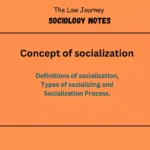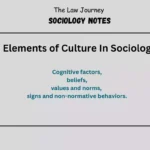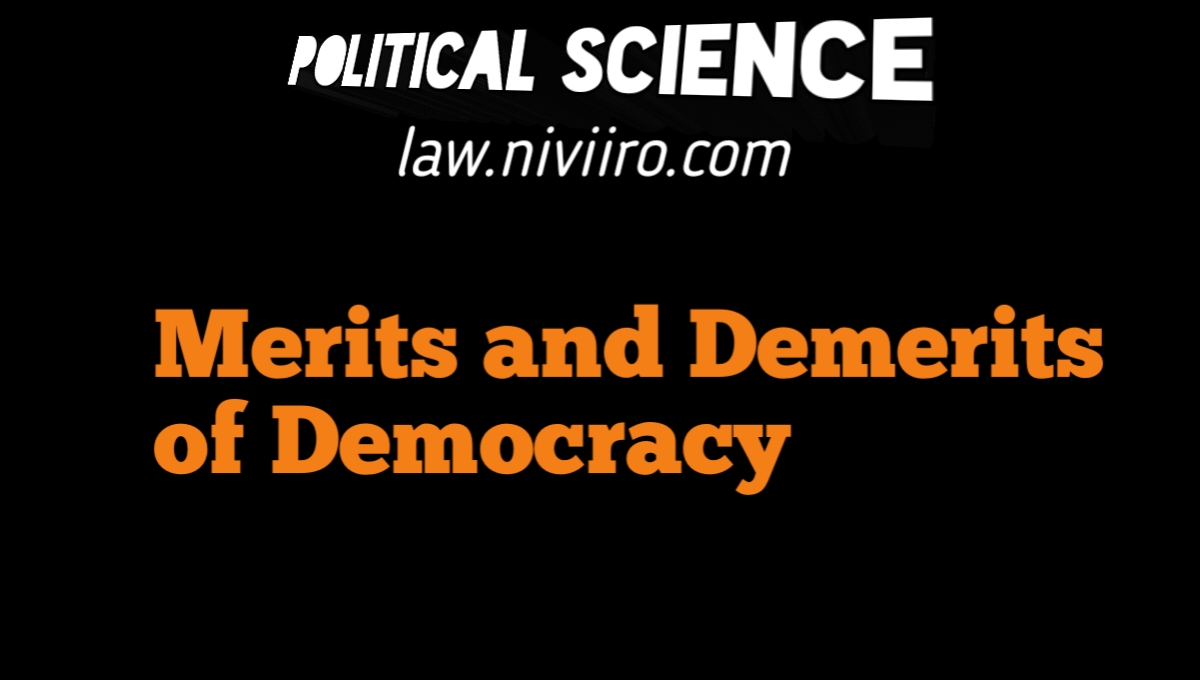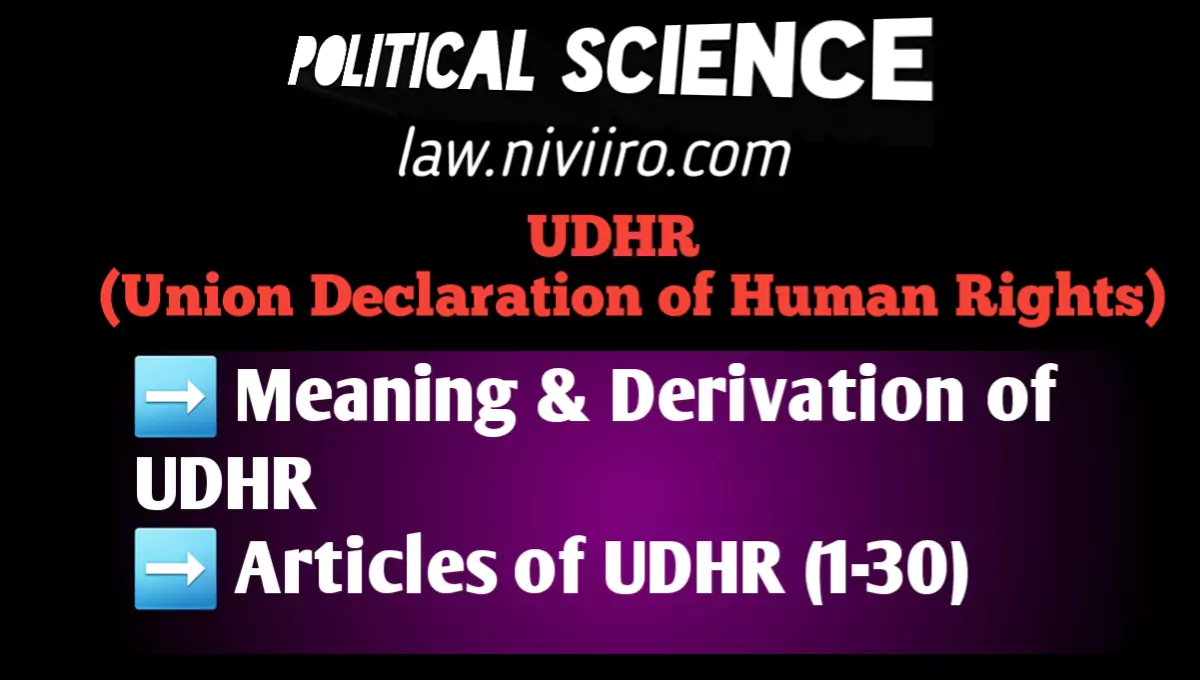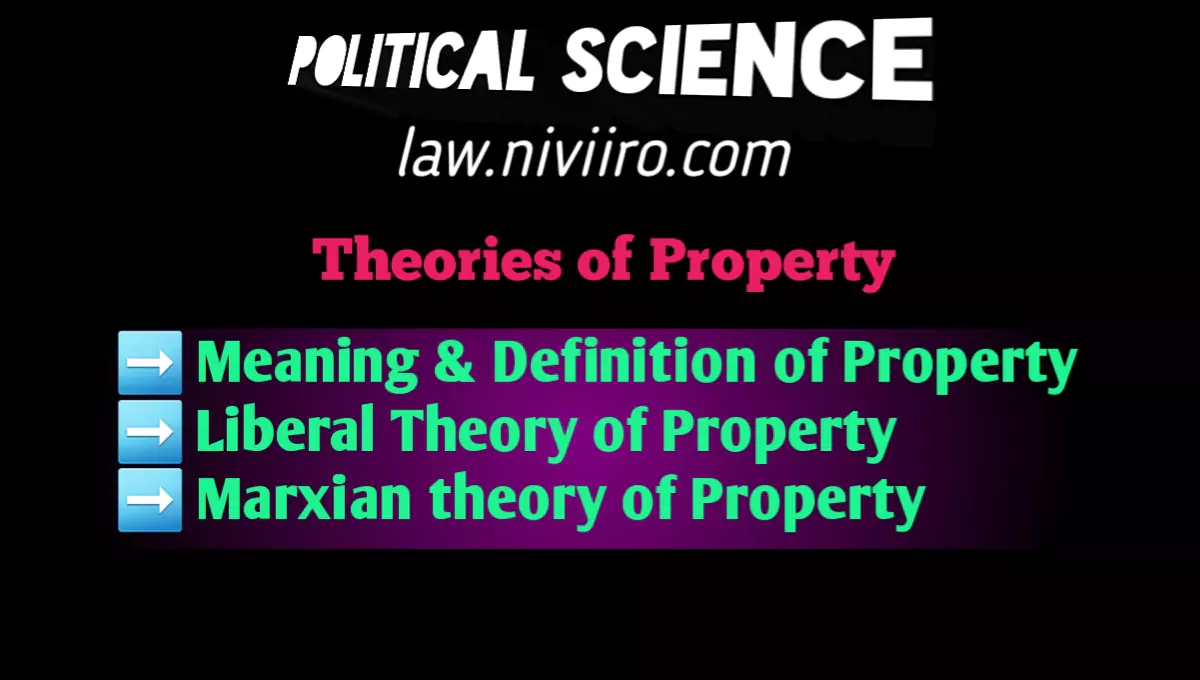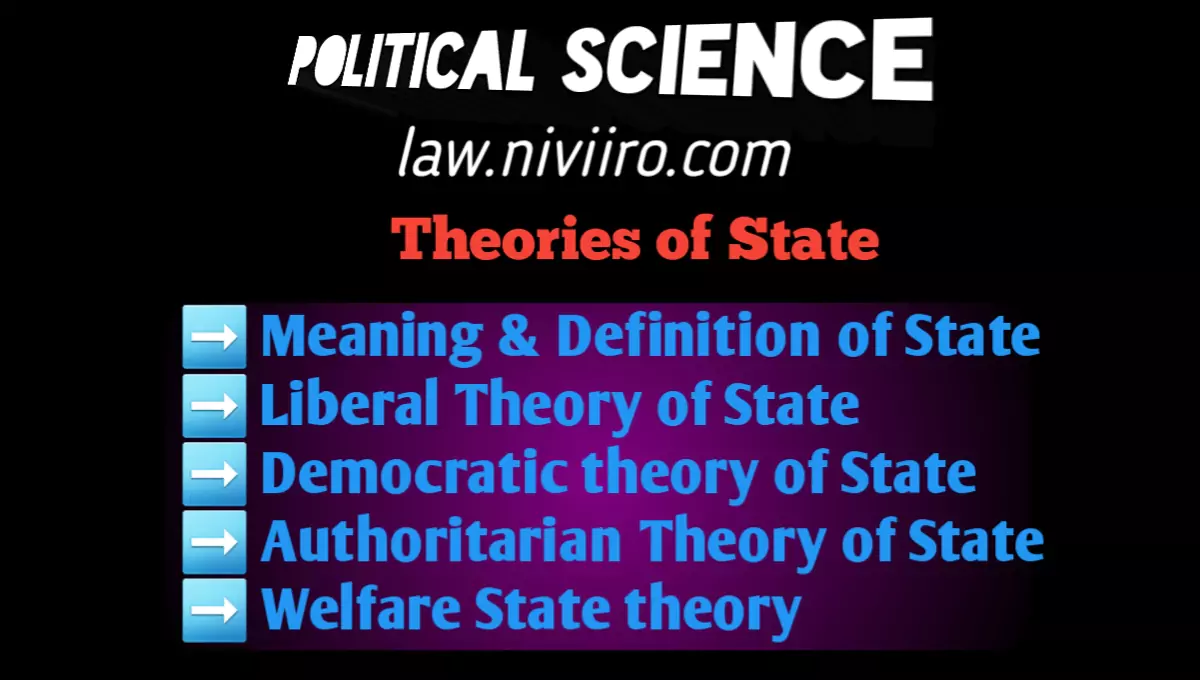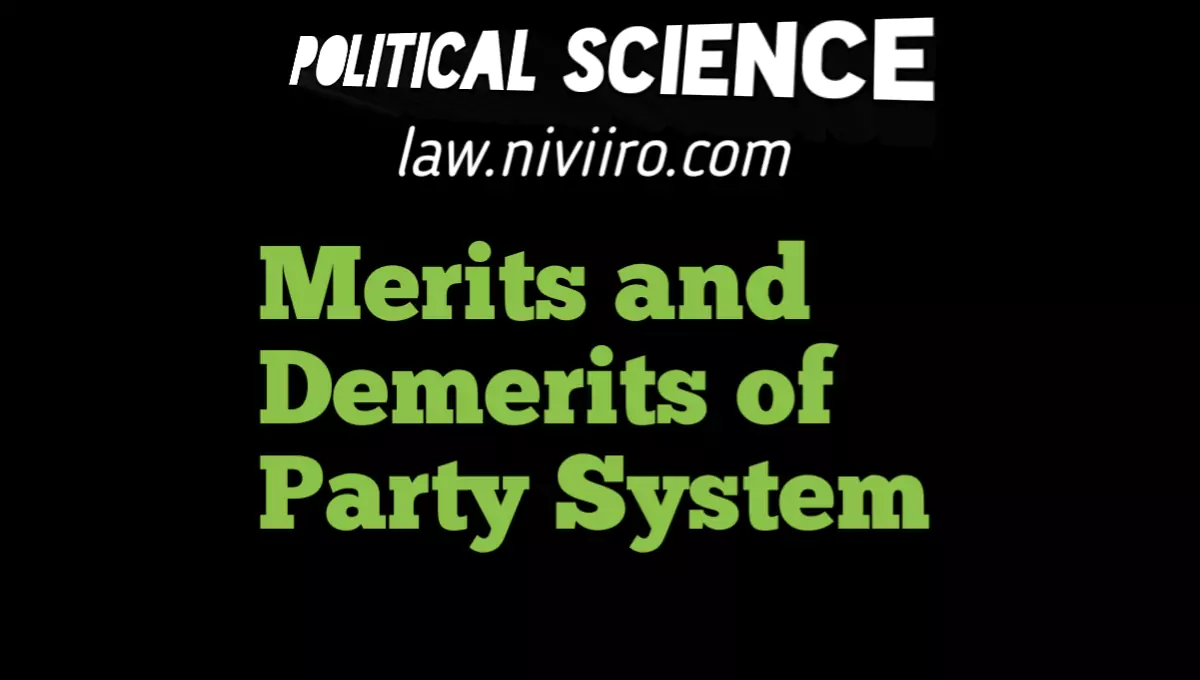As we already discussed the meaning, type and principle on which democracy is based. now we are going to talk about Merit and Demerits of Democracy.
Merits of Democracy | Merits and Demerits of Democracy
Democracy is the best form of government and its merits are as under:
(1) It is based on public opinion
Professor Gettell has remarked that “Democracy moves the basis of sovereignty from force to consent, and regards the state as existing for the individual, rather than the individual as existing for the state. As a result, personal liberty is more likely to be legally protected. The strongest justifications for democracy are based on its value in developing and elevating the masses of people, in stimulating their interest in public matters, and in encouraging their loyalty and faith in the administration in which they participate actively.
As a result, democracy acts as a training ground for citizenship “As a result, we may conclude that democracy is founded on public opinion. People have the greatest possibility for self-government under democracy. In desperation, the people’s representatives rule the administration. The legislature makes laws based on the wishes of the people. The Council of Ministers reports to the House of People. The interests of the people are given special consideration by democratic governments. ‘In a genuine democracy, nobody can protest that he has been forgotten,’ Lowell writes.”
(2) It serves as a training school for good citizenship
Democracy provides disciplinary, instruction, Love, sympathy, cooperation, and generosity. In a democracy, the administration is in the hands of the people’s representatives, who are trained.
(3) It is based on equality
A democracy grants no special rights to any class of society. Everyone is treated equally, and there is no discrimination based on sex, colour, caste or creed. Discrimination of any kind has been fully abolished in India, the world’s largest democracy. There used to be discrimination between black and white people in the United States of America. The black Negroes were not treated favourably, but they now have equal rights in society.
They were able to gain certain rights from their rulers and form democracies to limit their powers after decades of struggle. This is why people are now granted fundamental rights under the constitution. Second, under democracy, the notion of global brotherhood is emphasised. In a kingdom and in Military and Fascist dictatorships, efforts are undertaken to invade other countries.
Communist countries believe in expansionist policies as well. China has invaded 14,500 square kilometres of Indian territory, while Russia has installed puppet governments in Hungary, Poland, and East Germany, Czechoslovakia, Bulgaria, etc.
Democratic governments, on the other hand, believe in the policy of coexistence and strive to solve all conflicts peacefully. For this reason. India signed the Panch Sheel principles with China and presented a Non-Aggression Pact proposal to Pakistan. However, due to their expansionist policies, both China and Pakistan disregarded these ideals and attacked India.
(4) It pays special heed to the interests of common man
Other forms of government offer special consideration to specific interests, while democracy gives no special consideration to any class. The common people’s interests are prioritised. As a result, democracy is regarded as the ideal form of government.
(5) It minimizes the chances of revolution
There is a remote prospect of revolution in a democracy because (a) public opinion is valued and (b) special attention is devoted to the wellbeing of the people. (c) no one class is given special treatment, and (d) everyone is provided an equal opportunity for self-development. Every four or five years, impartial elections are held, and opposition parties have full access to express their views.
As a result, the opposition parties do not see the need to depose the government by a violent revolution when it can be deposed at the ballot box. Gilchrist has said. “Popular government is a government by common consent from its very nature. Therefore, it is not likely to be revolutionary.”
(6) It raises the moral standard of the people
Common people are considered incompetent in dictatorships and absolute monarchies, and they are denied all rights and are deemed unfit to provide leadership in the government. However, government in a democracy thinks that the people are the ultimate source of sovereignty and that their leadership is crucial. All adults are granted the right to vote for this purpose. Periodically, elections are held. This makes people realise their power and instils a feeling of responsibility in them, because electing the wrong people has a negative impact on the administration.
Bryce has stated in this regard. “the member of the person is dignified by his political enfranchisement and that he is typically brought to a higher degree of the sense of duty which it throws upon him”. According to John Stuart Mill. “It produces a better and higher form of national character than any other polity whatever”. Lowell asserts. “The best government in the long term is the one that nourishes a people strong in moral power, in honesty, industry, self-reliance and courage”. Because democracy meets all of these criteria, it is the ideal form of governance.
(7) It is the greatest upholder of the lofty ideals of liberty and fraternity
A democracy provides a level of liberty not available in any other system of governance. It is obvious from the fact that, despite the fact that India was under state of emergency from October 26, 1962 to January 10, 1968, and fundamental rights were suspended, opposition parties were given the right to criticise the government and hold demonstrations.
On August 16, 1965, the Jana Sangh staged a protest against the Government of India’s Kutch Agreement. Other parties criticised the Kutch Agreement as well. Opposition parties also criticised the Tashkent and Simla deals. There were Aristocracies in the world prior to the introduction of democracy, Oligarchies, and tyrannical administrations, but in these types of governments, people had no rights and they were dependent on the mercy of the rulers.
(8) Democracy is an efficient form of Government
In a democracy, the representatives of the people govern the administration, and they are terrified of doing anything wrong since they are accountable to the Parliament and the people. They consult many specialists on how to run the administration efficiently and pay close heed to press criticism. They check the government for extravagant expenditure and compel the administration to follow the principle of economy out of fear of public opinion.
Competitive examinations are used to choose government officials, who are then given proper training. They stay at their station until they retire, gaining expertise and efficiency.Ministers have total control over them, and the administration is run on their advice. a few percent of the time. As a result, the ministers provide very effective administration.
Garner has rightly said, “Popular election, popular control and popular responsibility are more likely to ensure degree of efficiency than any system of government.”
(9) Democracy is most suitable for social, economic, political and religious reforms
Administration in a democracy is in the hands of experienced leaders. They have the people’s full support and hold very progressive beliefs. Thus, with the people’s help, they erase all evils and strive to make the country powerful. As an example. With the people’s help, Prime Minister Jawaharlal Nehru abolished the Zamindari system.
He passed the Hindu Code Bill, putting an end to the centuries-old evil of untouchability. Sardar Vallabhbhai Patel concluded the integration and democratisation of Indian states after eliminating the absolute regime of the princes. We’ve already addressed the benefits of democracy. Now we will explore the disadvantages in order to reach a proper conclusion.
(10) It gives political education to the people
Every adult has the right to vote in a democracy. People enjoy the right to vote without regard to caste, creed, property, gender, religion, or education. Different points of view are accepted in a democracy, and there is freedom of expression and belief. As a result, numerous political parties form. Elections are done on a regular basis to give political power to a specific party.
During elections, each party promotes its platform to the public, and the public’s attention is focused on a variety of political, economic, and social issues. During an election, officials from political parties take voters to polling places and instruct them on how to vote.
People are taught democracy in this manner. Following elections, the majority party forms the government, while the opposition parties form the opposition. When there are debates in the Legislature or in the Parliament, people go to visitors’ gallery and listen to the debats. People read the proceedings of legislatures as well, and as a result, they obtain proper political education.
The people’s representatives who govern the administration receive proper political training. “All government is a way of education, but the best education is self-education, so the best government is self-governance, which is democracy,” remarked C.D. Burns.
(11) It promotes patriotism and national unity and creates the interest of the people in the administration
Citizens enjoy a sense of participation in the government under a democracy since the government is run by representatives elected by them. Participation in government teaches people responsibility and instils a sense of patriotism in them. As a result, they are quite interested in the administration. There is no great divide between the administration and the people, who believe they are the architects of their country. “Democracy strengthens the love of the country because citizens believe that the Government is their own invention and the magistrates are their servants rather than masters,” wrote John Stuart Mill.
Demerits of Democracy
Following are the demerits of democracy:
(1) In democracy administration is very costly
Elections are an extremely expensive luxury in democracies. The vast sums spent on elections could be put to better use in a variety of other ways. Furthermore, elections generate a great deal of excitement, dislocation, and disorder. The multiple legislative bodies and ministries are likewise quite expensive. Democracies have no reason to save money. They are vulnerable to misfortune at the hands of financial speculators and mountebanks. That explains why there are so many financial scandals.
(2) Democracy hinders the progress of civilization and culture
Henry Maine, Lecky and Trietschke criticise democracy because it hinders the progress of culture and civilization. They believe that ordinary people are generally conservative and oppose progressive ideas. Civilization and culture, according to them, develop in aristocracy. “The culture that a democracy develops is said to be boring, mediocre, or dull,” writes Burns.
According to Sir Henry Maine, “It appears quite certain that if the franchise had been broadly expanded for four centuries, there would have been no religious reformation, no change of dynasty, no tolerance of dissent, and no accurate calendar. Thrashing machines, power looms, spinning jennies, and probably steam engines would have been outlawed “.
In the words of Le Bon, “If the democratic governments had powers like today in those days when the power looms and steam- power had not yet been produced, either these inventions had not taken place or they were possible only on the destruction of mankind.
(3) Democracy is the rule of incompetent person.
Democracy is considered as the rule of fools, incompetents, and illiterates. Administration, according to Plato, is an art that the common man cannot learn. Only intellectual and competent people can fully comprehend the administration, but democracy is the rule of illiterates. Democracy, according to Aristotle, is a corrupted form of government.
Lecky states. “A decision upon the basis of a popular vote is ultimately the rule of ignorance. History demonstrates that intelligence lives with the few rather than the many. When ignorance reigns, liberty suffers. Democracies are harmful to intellectual advancement and scientific progress “.
According to Sir Henry Maine, “Experience has shown that popular government is extremely fragile, and that since its inception, all systems of government have become more unstable than before. The theory of liberty being incompatible with that of equality adds to the weakness and allows wire-pullers to dominate and operate.” Professor Barker is of the opinion that efficiency deteriorates in democracy and only a few clever persons succeed in securing majority votes in their favour and thus run the administration.
“A youth must pass an examination in Arithmetic before he can hold a second class clerkship in the Treasury, but a Chancellor of the Exchequer may be a middle-aged man of the world who has forgotten what little he ever learned about figures at Eton or Oxford and is innocently anxious to know the meaning of those little dots,” writes Sir Sydney Low.
(4) Capitalists exercise a dominant influence upon democracy
Capitalists have a large effect in democracy since they donate to the party that is predicted to win elections and then influence the country’s law-making. Capitalists have an impact on both the press and the country’s economy because they own the bulk of newspapers and enterprises. The American brand of democracy is known as “Dollar Democracy,” and capitalists also dominate Indian, English, and other democracies. Capitalist democracy, according to Marxists, is meaningless, and true labour freedom is only guaranteed under socialist democracy.
(5) Democracy gives more importance to the quantity rather than to quality
Democracy has often been chastised for emphasising quantity over quality. Because in a democracy, the amount of votes one receives determines one’s win or failure. The value of a highly educated person’s vote is comparable to that of an idiot. When it comes to establishing laws in Parliament, everything is decided by majority vote, with no regard for educated people’s opinions.
(6) In the Democracy there is the rule of majority which becomes unjust sometimes
In a democracy, the majority becomes autocratic and disregards minority. This contributes to the creation of despotic authority. For example, minorities’ (Hindus, Buddhists, and Christians) concerns have been utterly neglected in Pakistan, and they have been driven out of the nation.
(7) Local conflicts are predominant in democracy which harm national interests
The welfare of the nation as a whole suffers in the race for power and patronage. Representatives compete with one another to secure the most advantage for their respective districts. As a result, the national interest is sacrificed for the sake of local gains. Several communal riots erupted in India during the formation of the states.
(8) Political parties spoil the harmonious atmosphere and corruption becomes rampant
During elections, moral considerations are sacrificed to obtaining the most votes. People are misled and misinformed by election propaganda. Following elections, the dominant party becomes autocratic, and the elected representative is responsible to the party on whose ticket he ran. He must speak and do as he is told. The ruling party also goes out of its way to appease the voters. As a result, dishonest people control society, and the moral standard of the country deteriorates as a result of widespread corruption.
(9) Sometimes the Government is not stable in a Democracy
The government is not stable in a multi-party system, as it was in France during the Third and Fourth Republics. Kerala’s government could not become stable, and President-Rule had to be enforced many times. Despite the fact that England has a party system, the Labour Party had a very small majority in the House of Commons in 1964-65, making government functioning difficult.
(10) It proves weak in times of war and crisis
In general, a democratic government is vulnerable in times of conflict and disaster. Hitler annihilated France in three weeks in 1940. South Vietnam was weaker than North Vietnam because South Vietnam was a democracy and North Vietnam was a Communist dictatorship. South Korea is also weaker than North Korea.
Conclusion
After discussing the benefits and drawbacks of democracy, we conclude that it has more benefits than drawbacks. The majority of the complaints levelled against democracy are unfounded, and those that are true can be mitigated to some extent. Lord Bryce, a staunch supporter of democracy, lays out the following flaws.
According to him there are six defects in it-
- The power of money to pervert administration or law
- The tendency to turn politics into a profitable vocation.
- Administration extravagance
- Abuse of the equality concept and an unwillingness to recognise the significance of administrative skill
- Party organisation has inordinate authority.
- The proclivity of legislators and political officials to play for votes in adopting legislation and tolerating violations of order.
Finally, while democracy is not without flaws, it is superior to other kinds of government such as aristocracy, oligarchy, and dictatorship. Democracy cannot be replaced by absolute monarchy, oligarchy, aristocracy, or dictatorship. It is true that good dictatorial rule is no substitute for self-government. Bryce writes, “The test of the government is the welfare of the people and that form of governance is to be sought which provides human tendencies the greatest scope and most consistent stimulation”. As a result, democracy is the most effective form of government.
Related Post
References
- J.C. Johari, Political Science
- Prof. H.C. Verma, Modern Political Theory
- V.D. Mahajan, Political Theory
- Prof. S.L. Verma, Modern Political Theory
- M.P. Jain, Political Theory liberal and Marxiam
- R.C. Agarwal, Political Theory
Sources













